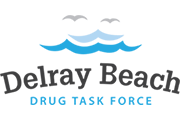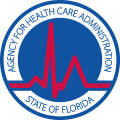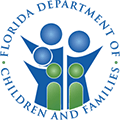Traumatic brain injury (TBI) is the medical term that describes disrupted brain functioning due to a jolt, bump, or other external cause. Traumatic brain injury can result from a wide range of occurrences, including accidental slips and falls, motor vehicle accidents, physical assault, natural disasters, and military combat. People of all ages and genders are at risk for TBI.
A concussion is one of the more common types of TBI. As noted by the U.S. Centers for Disease Control and Prevention, even though a concussion is typically classified as a mild form of TBI, any person who suffers any type of traumatic brain injury should seek medical attention.
According to the American Association of Neurological Surgeons (AANS), more than 13.5 million people in the United States are currently experiencing some level of disability due to traumatic brain injury.
Signs & Symptoms of Traumatic Brain Injury
The signs and symptoms of traumatic brain injury can vary widely from person to person depending on a variety of factors. The following are among the more common TBI signs and symptoms:
- Headaches
- Vision problems, including blurred vision, double vision, and loss of vision in one or both eyes
- Hearing difficulties, including ringing in the ears, partial hearing loss, and complete hearing loss
- Dizziness
- Muscle weakness and poor coordination
- Impaired speech patterns
- Amnesia and other memory problems
- Difficulty focusing and concentrating
- Diminished capacity for learning
- Acting with uncharacteristic anger or aggression
- Dramatic mood changes
- Increased sensitivity to sound or light
- Loss of interest in events, topics, or hobbies that were previously of great importance
- Withdrawal from friends and family members
TBI Causes & Risk Factors
Traumatic brain injury occurs after a person’s head comes into contact with a hard object or other destructive force. Common causes of TBI include:
- Accidental falls
- Automobile crashes
- Assault or other acts of violence
- Sports
- Being in the vicinity of an explosion
- Intentional self-injury
Age and gender are both risk factors for TBI. Traumatic brain injury is most common among people age 75 and older. TBI also occurs more often among men and boys than among women and girls.
A person’s profession and hobbies can also influence their risk for TBI. For example, being involved in military combat and playing certain sports can increase the likelihood that a person will experience a traumatic brain injury.
Traumatic Brain Injury Statistics
The following statistics about traumatic brain injury were provided by the U.S. Centers for Disease Control and Prevention (CDC). These TBI statistics are from a 2014 report, which is the U.S. government’s most recent comprehensive review of traumatic brain injury:
- Traumatic brain injury was a factor in about 2.5 million emergency room visits in the United States in 2014.
- From 2006-2014, the age-adjusted annual rate of emergency room visits related to TBI increased by 54%.
- Unintentional falls were the cause of 47.9% of all TBI-related ER visits in 2014.
- More than 280,000 Americans were hospitalized for traumatic brain injury in 2014.
- More than 56,000 deaths in the U.S. in 2014 were attributed to TBI.
Potential Effects of TBI
The effects of TBI can range from minor, temporary setbacks to severe, permanent, and even life-threatening outcomes. Depending on what type of traumatic brain injury a person experiences, the potential short- and long-term effects of TBI can include:
- Infections
- Convulsions or seizures
- Paralysis
- Injuries due to impaired coordination or violent outbursts
- Inability to perform to expectation in school or at work
- Academic failure, job loss, and unemployment
- Financial difficulties
- Substance use and addiction
- Onset or worsening of certain mental health concerns
- Diminished self-esteem
- Pervasive sense of hopelessness or helplessness
- Social withdrawal and isolation
- Minimally conscious state
- Death
When a person who has a traumatic brain injury also struggles with a substance use disorder, their risk for significant harm and more severe effects can increase dramatically. However, when a person receives proper care from a trusted provider, they can begin to heal from certain TBI effects, learn to manage the symptoms they’ve been experiencing, and achieve improved quality of life.
Therapies Used in Treatment for Traumatic Brain Injury & Addiction
Every person who receives care at our facility follows a customized plan that reflects their unique history, needs, and goals. Depending on several individual factors, a person’s care for TBI and addiction may include:
- Medication management
- Individual and group therapy
- Family therapy
- Experiential therapies
- Cognitive behavioral therapy (CBT)
- Dialectical behavior therapy (DBT)
- Motivational interviewing
- 12-Step support
We also develop a detailed discharge plan for every person who participates in programming for TBI and addiction. Our discharge planning service ensures that clients are connected with the services and resources that will support their continued progress after they’ve transitioned out of our care.
Reasons to Choose Our Treatment Center for TBI & Addiction
When you’re seeking professional help for addiction and TBI, it’s important to find the provider that offers the type and level of care that best match your needs, preferences, and goals. The many reasons why Wellness Resource Center may be the ideal choice for you include:
- Thorough intake assessments and personalized plans for each client
- Safe, inclusive environment where all are welcomed and respected
- Services provided by a team of experienced professionals
- Full continuum of care, including outpatient programs with a supportive housing option
- Flexible length of stay
- Detailed discharge planning to promote sustained success
- Most major forms of insurance accepted













